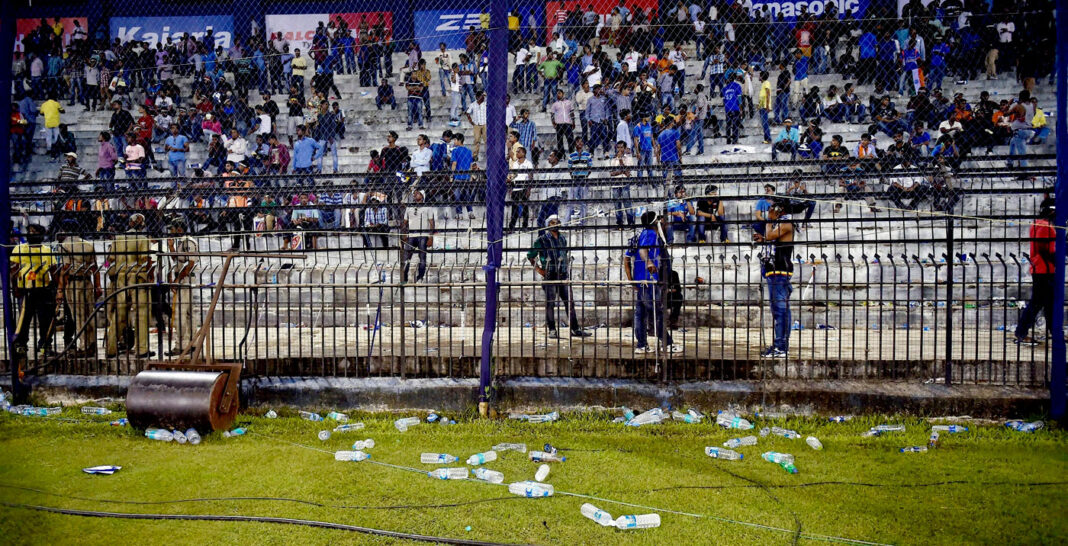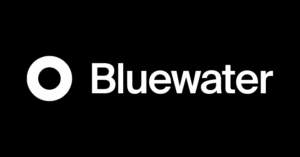With the tournament dates for Season 4 of DP World ILT20 now announced, and planning for the season in full swing, this blog takes a look at the work being done in sport to reduce waste, and how it can go further to contribute to a waste-free society.
There are many ways to reduce waste, starting with reducing how much is consumed, reusing things for longer so you need to consume less overall, recycling to return the materials back to production, recovering to capture the energy in the item so it can be used for something useful (like electricity), and then finally, if there is still anything left (which hopefully there isn’t!), disposing.

Reducing Waste at Sports Events
At sports events, there are many opportunities to become waste-free. The biggest opportunity comes with reducing waste. Reusable cups, cutlery, and plates are all becoming more commonplace in sports, with events using fun designs on cups to encourage fans to use them. Food waste is another big issue globally, and sports events are no different. Taking steps to reduce food waste by working with local organisations who can distribute unused food, and using systems to monitor food procurement is key to addressing this. Finally, grass clippings is another form of waste, and one that is often overlooked. Using equipment which drops these clippings back on the pitch can help keep nutrients in the pitch. Grass clippings can also become energy through a process called anaerobic digestion. This is a biological process where microorganisms break down organic material, (e.g., grass), in an air-tight environment without oxygen. The end product is biogas, a renewable energy source, and a nutrient-rich fertiliser called digestate.

DP World ILT20 has also reduced another form of waste that’s overlooked, and that’s paper tickets. Our League uses digital tickets as standard, helping to save paper. However, one area that could still be improved is food & drink.
Desert Vipers don’t control food & drink at our home stadium, so we don’t yet have reusable cups in the Dubai Stadium, but we wanted to do something positive for sports and reduce waste. We therefore sponsored 350 cups for Woodhall Spa Cricket Club, a community cricket club in the UK (which is also the home club of our Development Lead, Jack Luffman), when they held their Cricket Festival weekend.
Finally, if reusable items can’t be used, using better materials can reduce the environmental impact from material use, even if the same quantity of material is used. An example of this is at Wimbledon where they used seaweed packaging for their strawberries and cream. Closer to home, and in DP World ILT20, we switched to wooden cutlery in hospitality for virtually all of Season 3, after a successful trial at our Season 2 Sustainability Match.
Reducing Waste in Sports Kit
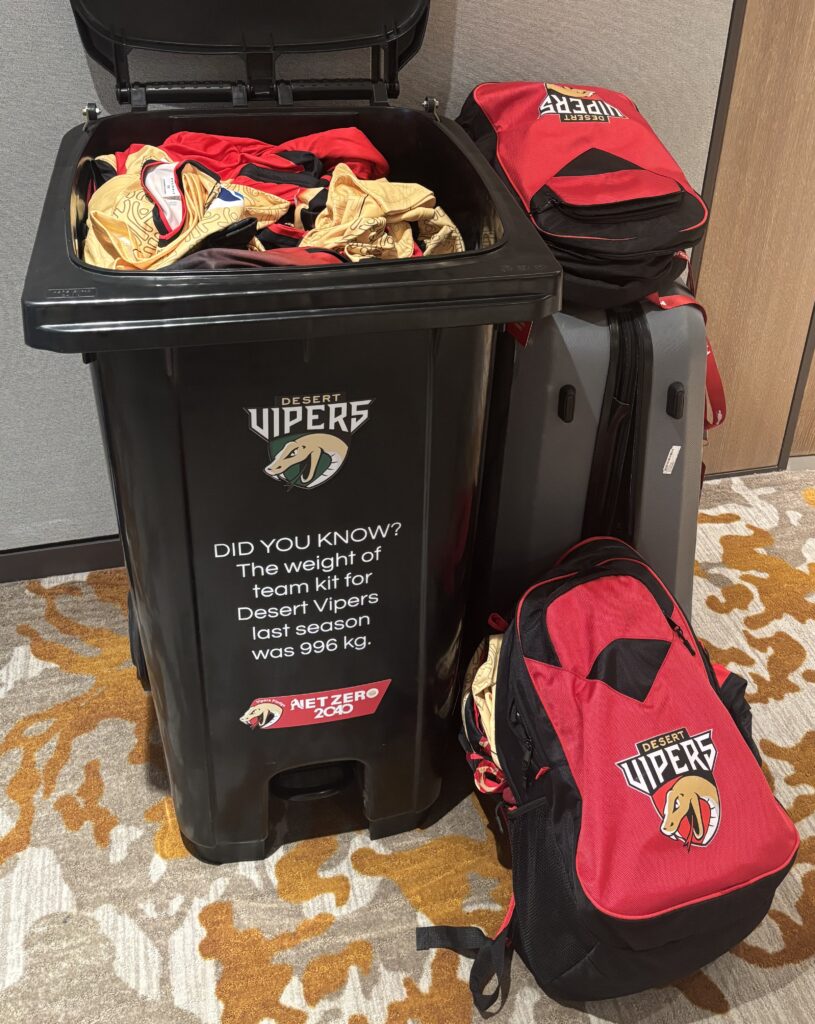
Onto something that isn’t commonly thought of when it comes to waste – sports kit. When we conducted our world first (we think!) Plastic Impact Report in Season 2, we found that 94% of our plastic came from sports kit. All of the work we had done to reduce plastic in drinks was important, but if we wanted to make an even bigger impact, we had to look at sports kit.
Between seasons 2 and 3, we partnered with PALMFIT to switch to fully recycled materials in our performance kit. However, we also looked at how we could reduce the amount of kit we needed, therefore reducing waste. We did this through two main ways:
- We reduced personalisation in clothing, which allowed us to reduce the amount of kit we needed by around 30%! Simple things like using luggage tags instead of embroidering, or not putting initials on staff items made a huge difference. We also evaluated which items provided value to partners, and where the value was minimal we decided to not place partner logos on those items, which typically change from season to season.
- We had every item packaged loosely, which saved 49,270 pieces of single-use plastic packaging, saving 246 kg of plastic.
Finally, once items are made, it is vital to keep them in circulation for as long as possible to reduce the need to purchase new items. Using generic designs can enable items to be reused from season to season.
However, where sponsors change or team members leave, the kit may not be able to still be used by sports organisations, so it’s important to do something positive with the material. At Desert Vipers, we donate unused items to people who need it, through a partnership with Bat For A Chance. This ensures our kit gets a second life, whilst also providing access opportunities for those who need our clothing.
For some items, especially those that can’t be reused, we upcycle them into new items. Last year, we worked with Middlesex University Dubai to turn polo shirts into sunglasses cases, pencil cases, washing bags, laptop/tablet cases, and bucket hats. These were really cool!
Setting the Example on the Pitch
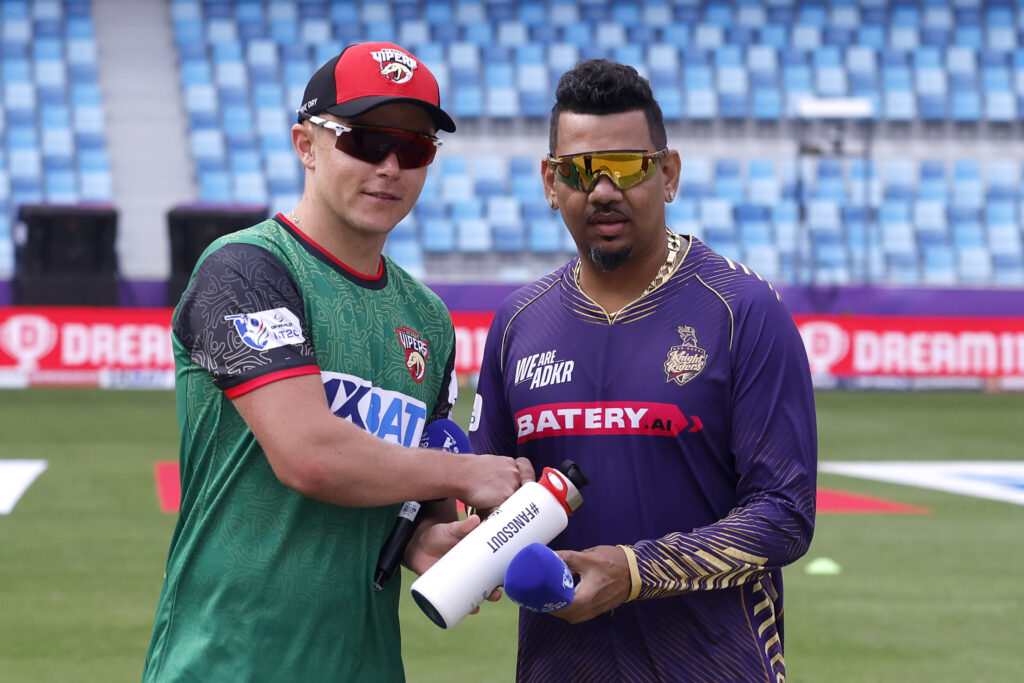
As important as it is to reduce the amount of waste sports organisations produce, perhaps of equal importance is setting an example for the rest of society to follow, given how highly valued sports is in society. Too often, the best athletes or coaches in the world are seen doing things unsustainably, and perhaps the most visible example is when they are seen drinking from single-use plastic bottles. This is particularly prevalent in the Premier League, where at any given match, you will likely see the manager drinking from a single-use plastic bottle just after their team scores or concedes. This is highly frustrating to see, as it sets the wrong example, and undermines all the other good work often being done by those organisations!
At Desert Vipers, we create conditions where our players can set an example, becoming the first cricket franchise in the world to successfully eliminate single-use plastic water bottles from our team environment, in partnership with Bluewater Group. You won’t see our players drinking out of single-use plastic water bottles! This saves 14,400 bottles per year, but more importantly it sets the example to our hundreds of millions of TV viewers.
To allow us to achieve this, we need a supportive environment from our coaches and management staff, which we are very fortunate to have. We also need to create environments where it becomes natural and the preferred choice to use the more sustainable option, and this is where our Team Hotel, JA The Resort, comes in. JA Resorts & Hotels were the first hospitality brand in the region to install water bottling systems to eliminate single-use plastics. Implementing this system has resulted in an estimated saving of 3.4 million pieces of single-use plastic so far! So it’s really easy to make the right choice when it comes to water bottles at our Team Hotel.
Can Sport Realistically Become ‘Zero Waste’?
Sport has a complex relationship with material use, so there needs to be myriad changes in order to achieve zero waste from events. However, perhaps the biggest changes required will come from a paradigm shift in what sports is for and how its revenues are generated. Switching from a material-based model, reliant on selling memorabilia, to a digital-based model, reliant on selling experiences, may ultimately be the biggest lever in moving sports towards zero waste. Emerging technology can make this possible, so it’s an exciting time to address this problem, with plenty of opportunities now and in the future.
Sustainability Spotlight – PALMFIT

This blog’s Sustainability Spotlight features PALMFIT, a UAE-born organisation, founded in 2020. PALMFIT joined as a Partner to Desert Vipers in Season 3, and worked with us as we became the first cricket team to play a full season using 100% recycled materials in our performance wear! PALMFIT believes that exercise is more than just looking good – it’s about feeling good. Their products, which are authentic, bold, and resilient, are created with you in mind. What’s more, is that their clothing is print-on-demand, incredibly high-performance, and uses quality materials, so they last longer (contributing to less waste). We would highly recommend PALMFIT to any sports organisation or individual.

About Carbon Happy World
At Carbon Happy World, we’re dedicated carbon accountants and ESG software consultants. We empower businesses to measure, manage, and significantly reduce carbon emissions. By providing a range of innovative solutions and insights, we help organisations achieve their carbon net zero goals and genuinely enhance their sustainability practices. As at Carbon Happy World every calculation starts a conversation.
